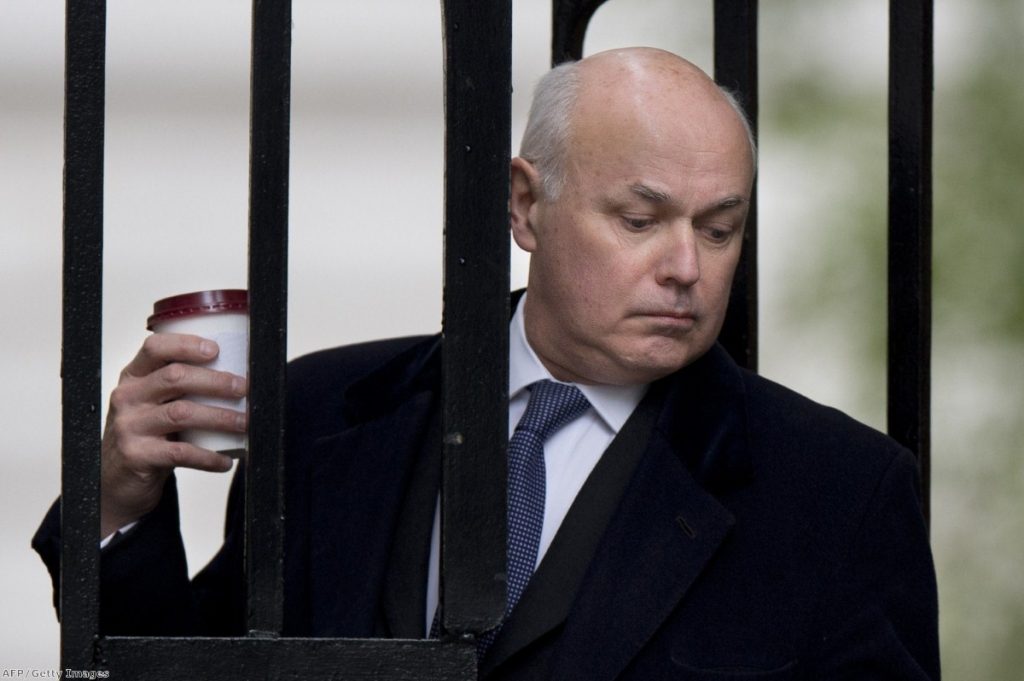Iain Duncan Smith continues to hide reports showing failure of universal credit
The Department of Work and Pensions (DWP) is continuing to block publication of reports set to reveal the failure of the Universal Credit scheme, despite a series of rulings insisting they should be released.
The department submitted a further appeal to the upper tier information tribunal, yesterday afternoon.
The scheme described as the biggest reform to welfare since Beveridge, was meant to begin last autumn, but has been beset by huge problems and delays since it was first conceived by Iain Duncan Smith.
A damning report by the National Audit Office last year found "the programme suffered from weak management, ineffective control and poor governance," and "has not achieved value for money."


Transparency campaigners have been pushing for the release of departmental documents which would reveal the scale and nature of problems with the multi-billion pound scheme.
The reports would also confirm whether the department deliberately misled the public about the progress of the scheme.
Press releases sent out by the DWP at the time claimed that universal credit was "on track and on time for implementing from 2013" and insisted that "Universal credit is on track and on budget."
The DWP is continuing to block the publication of the following documents.
- The risk register: This is a record and evaluation of possible risks to the development and operation of the universal credit scheme and the "gravity" of those risks.
- The issues register: This is a continuing record of problems within the programme, why they have occurred and how they can be dealt with.
- A milestone schedule: This sets out the planned progression of the programme and the dates by which elements should be completed.
- A project assessment review: This is an assessment of independent reviews taken of the project under the auspices of the cabinet office.
The DWP insist the release of these documents would have "a chilling effect" on the workings of the department.
However, an information tribunal ruling published earlier this year found no evidence of this and insisted that: "we are not persuaded that disclosure would have a chilling effect in relation to the documents before us."
They also insisted there was a "strong public interest" in their publication.
The department have now submitted a further appeal against this decision. In their appeal submitted yesterday afternoon, they say the documents contain "candid" and "imaginative pessimism" about the scheme which if published would "imperil that necessary candour and frankness."
The member of the public who successfully took the case to the Information tribunal said the department should now stop trying to hide the reports.
"I’m sure that IDS will do everything he can to avoid disclosing documents that, in all likelihood, will show that the universal credit programme was poorly designed and badly run from the start," John Slater told Politics.co.uk
"I have wonder about the hypocrisy of the government when Andrew Mitchell has called for the disclosure of transcripts of disciplinary hearings against the police officers involved in his case but the 'biggest reform to welfare since Beveridge' continues to take place in secret."
If the department's appeal to the upper tribunal fails, Duncan Smith could still use his ministerial veto to block their publication under the Freedom of Information Act.
However, the ministerial veto has only been used a handful of times by the UK government.
Former health secretary Andrew Lansley previously used it to block full publication of the NHS risk register, which would have revealed risks facing the government's controversial NHS reforms.









